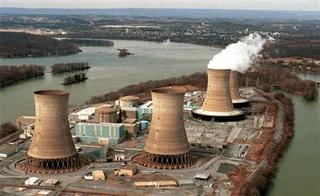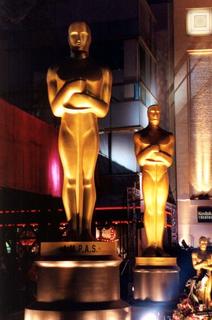
The doomsayers are right, unfortunately. We’re going to run out of oil in about 20 years, and no efficient renewable resource
technology is likely to be ready in time to prevent a catastrophe. Other disasters are already underway: global warming, the massive
extinction of species, the pollution and misuse of existing
aquifers, the depletion of forests and other carbon sinks, the renewed clamor to obtain and create new
nuclearweapons, the cultural conflicts between resentful
Muslims and the modern Western societies…
I could go on, but you know the story already. We, as a species, are likely to run into an irreversible catastrophe within a decade. It’s in the newspapers and movies, which we observe in a frozen, passive state, waiting for the inevitable but failing to mobilize.
We are all required, in this situation, to give our maximum energy and commitment to solving global problems.
Saving_the_world is everybody’s assignment — not just mine or yours. So why aren’t we devoting every ounce of our energy to meeting this stupendous challenge? Why isn’t everybody an activist?
Well, I personally
am an
activist and have been for decades. Most of that time I’ve been a full-time peace activist – teaching, writing, and editing a journal addressing peace,
nonviolence, and disarmament issues. But when I think back upon the mental steps that I went through in becoming an activist, I can see what keeps other people from contributing to some of these projects.
Let me tell the story of my “epiphany” and the lessons I’ve learned from it.
It began with the
Three_Mile_Island nuclear power plant accident in March 1979. A series of mishaps led to the overheating of
nuclear fuel and the near melt-down of the reactor. The situation never became as serious as it might, and indeed nobody even became sick as a result. However, for a few days we had every reason to expect that there would be casualties – that everyone in the vicinity of the plant might have been exposed to dangerous — perhaps even lethal — doses of
radiation. If so, they would not feel the symptoms yet, but they would be “walking corpses,” for nothing could save them from eventual death.
I remember going to bed that first night imagining what those people felt like — those who supposedly had been irradiated. If I were one of them, what would I be planning to do? Knowing that I was going to die anyhow, regardless of any medical interventions, I was sure I’d want to put the remainder of my days to good use. Since I would no longer have any reason to protect myself, I would
volunteer without hesitation for any risky, even life-threatening, mission that might allow me to be useful. I’d want, above all else, to use the last few weeks of my life contributing something of value to society. I’d do anything, anything at all, to make such a contribution.
But what? What exactly could I do, as a mortally wounded person — or even as a healthy person — that would be worth the sacrifice of my life? I thought hard about that and realized that clear-cut, unmistakable opportunities to contribute are actually quite rare, whether or not they involve serious bodily risks. In fact, if I knew of anything that was definitely worth giving my life for, I’d do it, even as a healthy person with a good life expectancy.
So that’s the problem! I can’t be a heroine because opportunities for
heroism are so rare. Mostly we can’t be confident that the outcome of our deeds will be even moderately useful to society, much less worth sacrificing our life.
Then it occurred to me that I’m no different from other people in this regard. I would give my life anyhow if something were clearly worth it, and so, probably, would you. The trouble is, we don’t know what’s worth doing. Hardly ever can we see a problem that is almost certainly worth devoting our lives to solve.
Yet life is most richly meaningful for those who are engaged in a project of such importance. At that moment, I decided to look for problems that are worth everything that may be required to solve them.
That decision changed my experience somehow. I had no commitment yet, but I was searching for one — and my readiness made all the difference.
The search took about four years. In 1983 I learned a dramatic new fact: that there were
50,000 nuclear bombs on the planet. If anyone had asked me to estimate how many existed, I might have guessed fifty. I had no idea! Clearly, this was a challenge that was worth my life. I didn’t know whether it might cost my career, say, or my life savings, or my family ties to work toward nuclear disarmament, but whatever the cost, I knew I’d be willing to pay it, to help get rid of nuclear weapons. Even if we failed, the effort would be worth it. And so I jumped into the campaign and worked on the problem most hours of my waking life for a number of years.
Why doesn’t everyone do the same — for nuclear
disarmament or any of the other global problems that threaten the survival of humankind?
I think many others might do so, if they could be sure what was worth doing. But that’s hard. Nuclear weapons are so unmistakably destructive that I could have no doubt about the goal, but I did have doubts about the means. What was the most promising approach to abolishing those bombs? That’s a pragmatic problem.
And when it comes to solving the other global problems, we are even less certain just what steps to take. For example, we know we need to stop burning fossil fuels — but how can we do so? What can I personally do to assist effectively in developing alternatives? As individuals, we can’t see any specific course of action that make a difference. I won't get enthusiastic about futile gestures. We never get a chance to be heroes. Indeed, we aren’t even looking for such a chance. And because we don’t look, the opportunity is even less likely to appear.
What we need to do is start looking actively for opportunities to make a difference, to contribute to the survival of humankind — and when we do look, at least three concrete possibilities are obvious.
Here’s the first clear-cut service to perform:
study the facts and clarify the probable solutions for at least one global issue. Without that clarity, people can’t be expected to dedicate their lives to working on it. Your participation in policy-making dialogues is a real contribution to others. When they see a clear, well-thought-out path that promises to be helpful, you've created an opportunity for others to become heroes.
The second service is this:
publicize those clear solutions. If people don’t know that there are answers, they can’t act on them. And because most serious problems are so complex, they won't independently stumble across the promising solutions that exist unless someone goes out of the way to point them out and disseminate the practical means of contributing.
The third valuable service is to
stimulate others emotionally to take on big chores with courage and optimism. People who believe that their lives don’t make a difference turn out to be right. They
won’t make a difference. Anything you do to remind people that they count helps them begin their search for ways of contributing. This third type of emotional service can be fulfilled in a variety of ways. In later blogs I’ll discuss
affective preparedness, and explore ways of fostering it — especially through
entertainmentproductions, which I consider the most promising way.







